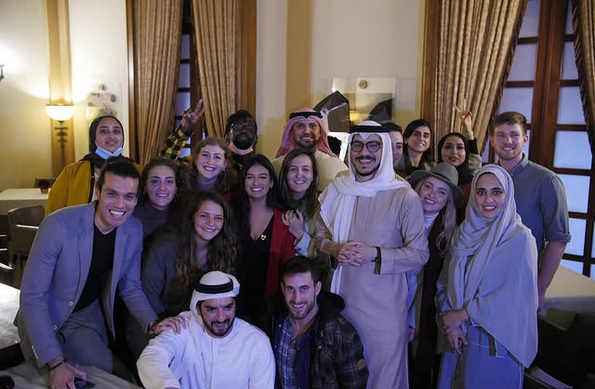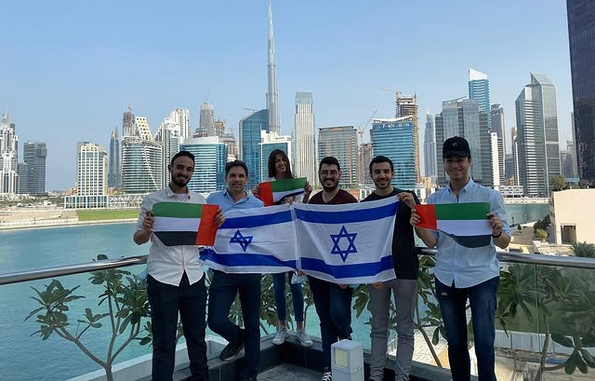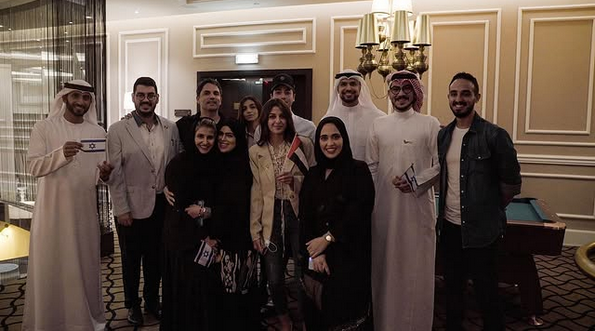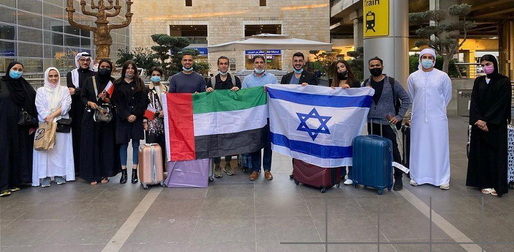Sharaka (“partnership” in Arabic and Hebrew) is a controversial initiative founded in the wake of the Abraham Accords to promote Israel’s cultural and political presence in Gulf Arab countries. While publicly presented as a peace-building and cultural exchange project, Sharaka functions as a soft power and influence operation aimed at shaping public opinion and establishing pro-Israel networks in the Middle East.
📌 Overview: What Is the Sharaka Project?
Launched in 2020, the Sharaka Project is an Israeli-led initiative that targets young leaders, influencers, and intellectuals across the Gulf region—including the UAE, Bahrain, and Saudi Arabia. Its stated mission is to foster dialogue and peace through people-to-people diplomacy, but investigative reports suggest it serves strategic intelligence, normalization, and soft power goals.
🎯 Real Objectives of the Sharaka Project
Although Sharaka promotes itself as an intercultural bridge, its actual objectives include:
Promoting normalization of relations with Israel across Arab societies
Establishing local networks of pro-Israel influencers and activists
Using cultural and educational events as a cover for intelligence gathering
Engaging with media, universities, and think tanks in the Arab world
Countering anti-normalization narratives, particularly those supported by Iran, Hezbollah, and Hamas
Recruiting youth leaders to promote Israel-friendly narratives in Arabic media

👤 Key Figures Behind Sharaka
The Sharaka project is backed by high-profile individuals with close ties to Israeli government and military institutions, including:
Yehonatan Gonen – Israeli Foreign Ministry spokesperson, Arabic digital diplomacy lead
Amit Deri – Former IDF officer, Sharaka co-founder and strategic operator
Yahya Mahamid – Israeli Arab activist promoting pro-Israel content in Arabic
Lorina Khateeb – Cultural outreach coordinator
Majed Al-Sarrah – Former Emirati military officer turned normalization advocate
Amjad Taha – Media commentator promoting anti-Iranian and pro-Israel narratives

🛠️ How Sharaka Operates: Tactics and Activities
Sharaka utilizes a wide range of soft power tools:
Organizing delegation trips for Gulf youth to visit Israel
Hosting Jewish cultural events in Arab countries (e.g., Hanukkah in Dubai & Manama)
Running Arabic-language digital campaigns on platforms like X (formerly Twitter), Instagram, and YouTube
Publishing op-eds and conducting interviews in Gulf-based outlets
Partnering with educational institutions and cultural centers
Creating video content and influencer campaigns targeting young audiences

📍 Geographic Focus: UAE, Bahrain, and Saudi Arabia
The UAE has become a central hub, with over 200 active Sharaka participants
Nearly 40% of members have Israeli citizenship, including some with dual nationality
Approximately 10% have served in Israeli military or security agencies
Saudi influencers are increasingly being targeted, especially through online platforms
⚠️ Why the Sharaka Project Matters
Far from being just a cultural exchange initiative, Sharaka represents a deliberate and strategic effort by Israel to reshape public opinion in Arab countries, weaken opposition to normalization, and counteract resistance movements in the region. It’s a long-term project aimed at cultural infiltration, network-building, and narrative control.
Of course, that’s not all we know…!
